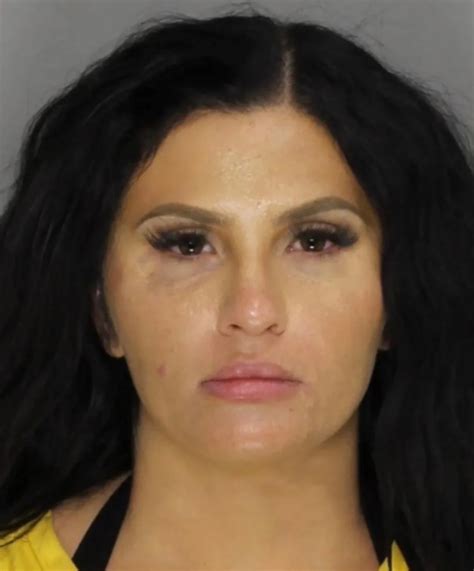
“Love Island” contestant Oliver George Harrison, recently ousted from the show, has issued a statement addressing a resurfaced social media post deemed racist and offensive, expressing remorse and a commitment to learning from the incident.
Oliver George Harrison, known as Harriett, a recent contestant on the ITV2 reality show “Love Island,” is facing intense scrutiny and backlash after a racially insensitive social media post from his past resurfaced online. Following his departure from the villa, Harrison issued a statement addressing the controversy, expressing deep regret and emphasizing his commitment to personal growth and education on issues of race and discrimination. The post in question contained language and imagery considered offensive, sparking widespread condemnation from viewers, commentators, and anti-racism organizations. Harrison’s response comes amid growing calls for accountability and a broader discussion about the vetting processes employed by reality television programs to prevent the inclusion of individuals with a history of problematic behavior.
The controversial post, details of which have been widely circulated on social media platforms, triggered an immediate wave of criticism directed at both Harrison and the producers of “Love Island.” Critics argue that the post perpetuated harmful stereotypes and contributed to a climate of racial insensitivity. In his statement, Harrison acknowledged the gravity of his actions, stating, “I want to issue a sincere and unreserved apology for the offensive language I used in a previous social media post. I understand that my words caused pain and offense, and for that, I am truly sorry. There is no excuse for my behavior, and I take full responsibility for my actions.”
Harrison further emphasized his commitment to learning from his mistakes, stating, “This experience has been a wake-up call for me. I realize that I need to educate myself further on issues of race and discrimination, and I am committed to doing the work necessary to become a better person. I am actively seeking guidance and resources to help me understand the impact of my words and actions, and I am determined to use this experience as an opportunity for growth.”
The controversy surrounding Harrison’s post underscores the challenges faced by reality television programs in ensuring responsible representation and preventing the inclusion of individuals with a history of problematic behavior. Critics have called for stricter vetting processes and a greater emphasis on diversity and inclusion training for contestants. The producers of “Love Island” have yet to issue a formal statement regarding the incident, but it is anticipated that they will address the concerns raised by viewers and commentators in due course.
The incident involving Harrison is not an isolated one. In recent years, numerous reality television contestants have faced scrutiny for past social media posts containing offensive language or discriminatory views. These incidents have sparked broader conversations about the role of reality television in shaping public perceptions of race, gender, and other social issues.
The fallout from Harrison’s post highlights the importance of accountability and the need for individuals to take responsibility for their actions. While apologies and expressions of remorse are important, critics argue that they must be accompanied by concrete actions to demonstrate a genuine commitment to change. This may include engaging in educational initiatives, supporting anti-racism organizations, and actively promoting inclusivity and diversity in one’s personal and professional life.
The Harrison controversy serves as a reminder of the power of social media to amplify voices and hold individuals accountable for their actions. In an era of heightened awareness of social justice issues, individuals and organizations are increasingly being held to a higher standard of conduct. This trend underscores the importance of responsible social media usage and the need for individuals to be mindful of the potential impact of their words and actions.
The situation also brings up the larger debate about cancel culture and the possibility of redemption. While some argue that individuals should be held accountable for their past mistakes, others believe that everyone deserves a chance to learn and grow. The challenge lies in finding a balance between accountability and forgiveness, and in creating opportunities for individuals to demonstrate genuine change.
Harrison’s situation provides a case study for how individuals and organizations can respond to allegations of racism and discrimination. His initial statement, while acknowledging his wrongdoing, will be scrutinized for its sincerity and the extent to which it is followed by concrete actions. The response from the producers of “Love Island” will also be closely watched, as it will set a precedent for how the show handles similar incidents in the future.
The controversy surrounding Harrison’s post underscores the importance of ongoing dialogue and education on issues of race and discrimination. It is essential for individuals to engage in self-reflection and to seek out opportunities to learn from others. By fostering a culture of empathy and understanding, we can create a more inclusive and equitable society.
The incident also highlights the need for greater media literacy and critical thinking skills. In an era of fake news and misinformation, it is essential for individuals to be able to evaluate the credibility of sources and to distinguish between fact and fiction. This is particularly important when it comes to social media, where information can spread rapidly and without proper vetting.
The situation surrounding Harrison’s post is a complex and multifaceted one, with implications for individuals, organizations, and society as a whole. It serves as a reminder of the importance of accountability, education, and ongoing dialogue on issues of race and discrimination. By learning from this incident, we can work towards creating a more inclusive and equitable future.
The impact of this scandal on Harrison’s future career remains uncertain. While some may be willing to forgive and forget, others may hold him accountable for his past actions for years to come. Ultimately, his ability to rebuild his reputation will depend on the sincerity of his efforts to learn and grow, and his willingness to actively promote inclusivity and diversity.
Furthermore, the controversy has reignited discussions about the psychological impact of reality television on contestants. The intense scrutiny and pressure that come with being in the public eye can take a toll on individuals’ mental health and well-being. It is essential for reality television programs to provide adequate support and resources for contestants, both during and after their time on the show.
The events surrounding Harrison’s post also underscore the importance of responsible journalism and media coverage. It is essential for journalists to report accurately and fairly on these types of incidents, and to avoid sensationalizing or perpetuating harmful stereotypes. By providing context and analysis, journalists can help to promote understanding and dialogue on complex social issues.
The incident also highlights the role of social media in shaping public opinion and holding individuals accountable. While social media can be a powerful tool for promoting social justice and equality, it can also be used to spread misinformation and hate. It is essential for individuals to use social media responsibly and to be mindful of the potential impact of their words and actions.
In conclusion, the controversy surrounding Oliver George Harrison’s racist post is a complex and multifaceted issue with far-reaching implications. It serves as a reminder of the importance of accountability, education, and ongoing dialogue on issues of race and discrimination. By learning from this incident, we can work towards creating a more inclusive and equitable future. The onus is now on Harrison to demonstrate a genuine commitment to change, and on the producers of “Love Island” to implement stricter vetting processes and provide greater support for contestants. The wider society must also engage in critical reflection and work towards creating a culture of empathy, understanding, and inclusivity.
In-Depth Analysis and Expanded Context:
The Oliver George Harrison case extends beyond a single offensive social media post. It highlights systemic issues related to diversity, inclusion, and accountability within the reality television industry and society at large. The controversy forces a deeper examination of vetting processes, the responsibility of platforms in shaping public perception, and the complexities of forgiveness and redemption in the age of social media scrutiny.
The vetting processes employed by reality shows have come under intense scrutiny. Often, these processes involve background checks and psychological evaluations, but they are not always sufficient to uncover problematic social media activity or deeply ingrained biases. This case raises questions about the depth and rigor of these checks and whether they prioritize entertainment value over ethical considerations. A more comprehensive vetting process might include:
- Deeper Social Media Audits: Not just looking for obvious red flags but analyzing patterns of behavior, associations, and engagement with controversial content. This could involve AI-powered tools to detect subtle biases.
- Diversity and Inclusion Training: Mandatory training for all contestants that goes beyond surface-level awareness and delves into unconscious bias, microaggressions, and the impact of harmful stereotypes. This training should be ongoing throughout the show’s production.
- Psychological Evaluations with a Focus on Bias: Evaluations should include specific questions and assessments designed to identify potential biases and prejudices. These evaluations should be conducted by professionals trained in cultural competency.
- Transparency and Accountability: Clear protocols for addressing problematic behavior that arises during the show, including mechanisms for investigation, disciplinary action, and public communication.
The lack of a robust vetting process not only puts individuals at risk of causing harm but also damages the credibility of the show and the network. It signals a lack of commitment to diversity and inclusion and can alienate viewers who expect a certain level of social responsibility.
The responsibility of media platforms, particularly reality television, in shaping public perception is undeniable. These shows reach vast audiences, and the individuals they feature become role models, whether intentionally or not. Therefore, the content they produce and the people they showcase have a significant impact on societal attitudes and beliefs.
“Love Island,” as a popular reality show, has a particular responsibility to promote positive values and challenge harmful stereotypes. This includes:
- Diverse Casting: Intentionally casting individuals from a wide range of backgrounds, ethnicities, sexual orientations, and abilities.
- Storytelling that Challenges Stereotypes: Creating narratives that subvert expectations and challenge traditional gender roles, racial stereotypes, and other forms of prejudice.
- Promoting Dialogue on Social Issues: Using the platform to raise awareness and facilitate discussions on important social issues, such as racism, sexism, and homophobia.
- Holding Contestants Accountable: Taking swift and decisive action against contestants who engage in problematic behavior, both on and off-screen.
The controversy surrounding Harrison also raises complex questions about forgiveness and redemption in the age of social media. In the past, mistakes could be more easily forgotten or forgiven, but today, social media acts as a permanent record, making it difficult for individuals to escape their past actions.
Some argue that individuals should be held accountable for their mistakes for life, while others believe that everyone deserves a chance to learn and grow. There is no easy answer, but a framework for evaluating redemption might include:
- Sincerity of Apology: Does the individual genuinely acknowledge their wrongdoing and express remorse?
- Concrete Actions: Has the individual taken concrete steps to educate themselves, change their behavior, and make amends for their actions?
- Consistency Over Time: Does the individual consistently demonstrate a commitment to positive change over a sustained period?
- Impact on Victims: Have the victims of the individual’s actions been consulted, and have their needs and concerns been addressed?
The concept of “cancel culture” is often invoked in these situations, but it is important to distinguish between holding individuals accountable for their actions and permanently ostracizing them. Accountability can involve consequences, such as losing a job or facing public criticism, but it should not necessarily preclude the possibility of redemption.
Ultimately, the Oliver George Harrison case is a microcosm of larger societal challenges related to diversity, inclusion, and accountability. It is a reminder that progress requires ongoing effort, critical self-reflection, and a willingness to engage in difficult conversations. By learning from this incident, we can work towards creating a more just and equitable world.
The long-term effects on Harrison’s personal and professional life are yet to be seen. He will likely face challenges in rebuilding his reputation and finding future employment opportunities. However, if he demonstrates a genuine commitment to change and actively works to promote inclusivity, he may be able to earn back the trust of the public.
The incident also serves as a cautionary tale for others who aspire to fame and fortune. It highlights the importance of being mindful of one’s online presence and the potential consequences of one’s words and actions. In the age of social media, every post, tweet, and comment is a reflection of one’s character and values.
The case also underscores the need for greater media literacy and critical thinking skills. It is essential for individuals to be able to evaluate the credibility of sources, identify bias, and distinguish between fact and fiction. This is particularly important when it comes to social media, where misinformation can spread rapidly and without proper vetting.
Finally, the Oliver George Harrison case is a reminder that the fight for social justice is an ongoing process. It requires the active participation of individuals, organizations, and governments. By working together, we can create a society that is more inclusive, equitable, and just for all.
Frequently Asked Questions (FAQ):
1. What exactly did Oliver George Harrison post that caused the controversy?
The specific content of the post has been widely circulated on social media. It contained language and imagery considered racially insensitive and perpetuating harmful stereotypes. While the exact details haven’t been explicitly reiterated in every news outlet, it’s understood the language used was offensive and considered racist.
2. What has been the immediate reaction to Harrison’s apology?
The reaction to Harrison’s apology has been mixed. Some individuals have expressed skepticism, questioning the sincerity of his remorse and calling for concrete actions to demonstrate his commitment to change. Others have been more willing to offer forgiveness, acknowledging that everyone makes mistakes and deserves a chance to learn and grow. The general sentiment is cautiously optimistic, with many waiting to see how Harrison will follow up his words with tangible actions.
3. What action, if any, has ITV2 (“Love Island”) taken in response to the controversy?
As of the reporting of the Yahoo article, ITV2 had not issued a formal statement regarding the incident. However, it is anticipated that they will address the concerns raised by viewers and commentators. There is significant pressure on the network to demonstrate that they take such matters seriously and to implement measures to prevent similar incidents from happening in the future.
4. What does this incident say about the vetting process for reality TV contestants?
This incident has raised serious questions about the effectiveness of the vetting process for reality TV contestants. Critics argue that the current process is not rigorous enough and that it fails to adequately uncover problematic behavior and deeply ingrained biases. There are calls for stricter background checks, more comprehensive social media audits, and mandatory diversity and inclusion training for all contestants.
5. What steps can individuals take to prevent similar controversies from arising in the future?
Individuals can take several steps to prevent similar controversies from arising in the future. These include:
- Being mindful of their online presence and the potential consequences of their words and actions.
- Educating themselves on issues of race, discrimination, and social justice.
- Challenging harmful stereotypes and biases in their own thinking and behavior.
- Supporting organizations and initiatives that promote diversity and inclusion.
- Using social media responsibly and promoting respectful dialogue.
Expanded FAQ:
6. Has Oliver George Harrison specified what kind of education or training he plans to undertake?
While Harrison stated his intention to seek guidance and resources, the initial statement did not explicitly detail the specific educational programs or training he intends to participate in. Future statements or actions would need to clarify the nature of these initiatives for a complete assessment.
7. Beyond an apology, what specific actions would demonstrate a genuine commitment to change from Harrison?
Concrete actions could include:
- Publicly supporting and donating to anti-racism organizations.
- Actively participating in diversity and inclusion workshops or training sessions.
- Using his platform to amplify the voices of marginalized communities.
- Speaking out against racism and discrimination in his personal and professional life.
- Engaging in dialogue with individuals who have been affected by racism.
8. What are the potential legal ramifications, if any, for posting racially insensitive content, even if it was from the past?
The legal ramifications would depend on the specific content of the post and the laws of the jurisdiction in which it was posted. While there may not be direct criminal charges, civil lawsuits for defamation or hate speech are possible in certain circumstances. The primary consequences are typically social and reputational.
9. How does this situation compare to other recent controversies involving reality TV contestants and problematic social media posts?
This situation is similar to other recent controversies in that it highlights the challenges of vetting reality TV contestants and the potential for past behavior to resurface and cause reputational damage. Each case has its unique circumstances, but they all underscore the importance of accountability and the need for individuals to take responsibility for their actions.
10. What role do sponsors and advertisers play in holding reality TV shows and contestants accountable for problematic behavior?
Sponsors and advertisers can play a significant role by withdrawing their support from shows or contestants who engage in problematic behavior. This can put financial pressure on the show and the individual to take corrective action. Public pressure on sponsors can also be effective in influencing their decisions.
11. What are the long-term consequences for “Love Island” as a brand if they don’t adequately address the controversy?
If “Love Island” does not adequately address the controversy, it could face a number of long-term consequences, including:
- Damage to its reputation and brand image.
- Loss of viewers and sponsors.
- Increased scrutiny from the media and the public.
- Difficulty attracting diverse contestants in the future.
- A perception that the show is not committed to diversity and inclusion.
12. How can social media platforms be more proactive in preventing the spread of hateful or discriminatory content?
Social media platforms can be more proactive by:
- Strengthening their content moderation policies and enforcement mechanisms.
- Investing in AI-powered tools to detect and remove hateful or discriminatory content.
- Providing users with more tools to report and block abusive content.
- Partnering with anti-hate organizations to identify and address emerging trends.
- Promoting media literacy and critical thinking skills among their users.
13. Is there a difference between “cancel culture” and holding someone accountable for their actions? Where is the line?
Yes, there is a difference. Holding someone accountable involves consequences that are proportionate to the offense and aim to promote learning and growth. “Cancel culture,” on the other hand, often involves a disproportionate and permanent ostracization of the individual, without necessarily allowing for redemption. The line is often blurry and depends on the specific circumstances, but it generally lies between reasonable consequences and permanent social exile.
14. How might this situation affect future contestants on reality TV shows, regarding their social media presence?
This situation will likely make future contestants more cautious about their social media presence. They may be more inclined to delete or scrub their accounts of potentially problematic content before appearing on a show. It may also lead to greater awareness of the potential consequences of their words and actions online.
15. What resources are available for individuals who want to learn more about anti-racism and diversity and inclusion?
Numerous resources are available, including:
- Books, articles, and documentaries on anti-racism and diversity and inclusion.
- Workshops and training sessions offered by diversity and inclusion consultants.
- Websites and online resources provided by anti-hate organizations.
- Community events and dialogues focused on promoting understanding and empathy.
- Educational programs offered by universities and colleges.
16. Could Harrison’s response be perceived as performative allyship, and how can he avoid that perception?
Harrison’s response could be perceived as performative allyship if it lacks genuine intent and is solely for public image. He can avoid this perception by:
- Consistently demonstrating a commitment to anti-racism through concrete actions.
- Being transparent about his learning process and acknowledging his mistakes.
- Listening to and amplifying the voices of marginalized communities.
- Avoiding superficial gestures and focusing on meaningful change.
- Being willing to be held accountable for his actions.
17. How does the media coverage of such incidents impact public perception and contribute to broader societal conversations about race?
Media coverage plays a crucial role in shaping public perception and contributing to broader societal conversations. Responsible journalism can provide context, analysis, and diverse perspectives, fostering understanding and empathy. Sensationalized or biased coverage, on the other hand, can perpetuate harmful stereotypes and exacerbate divisions. The way the media frames these incidents can significantly influence public opinion and the direction of social change.
18. What are the ethical considerations for reality TV producers when dealing with contestants who have problematic pasts?
Ethical considerations include:
- Transparency: Being upfront with contestants about the potential consequences of their past actions.
- Fairness: Applying standards consistently and avoiding double standards.
- Respect: Treating contestants with dignity and avoiding exploitation.
- Responsibility: Taking responsibility for the potential harm that contestants may cause.
- Due Diligence: Conducting thorough background checks and psychological evaluations.
19. How can communities support individuals who are working to learn from their mistakes and promote positive change?
Communities can support individuals by:
- Offering opportunities for education and dialogue.
- Providing mentorship and guidance.
- Creating safe spaces for discussion and learning.
- Recognizing and celebrating progress.
- Avoiding judgmental attitudes and focusing on constructive support.
20. What impact does this type of controversy have on the mental health of the individual involved, and what support should be offered?
These controversies can have a significant negative impact on mental health, leading to anxiety, depression, and social isolation. Support should include:
- Access to mental health professionals who are trained in cultural competency.
- Confidential counseling services.
- Peer support groups.
- Media training to help navigate public scrutiny.
- Ongoing support and encouragement.









